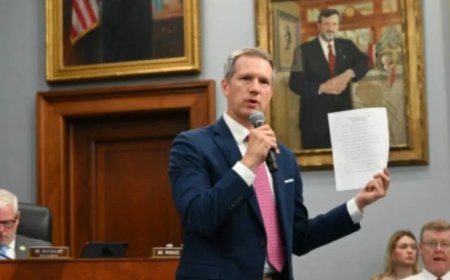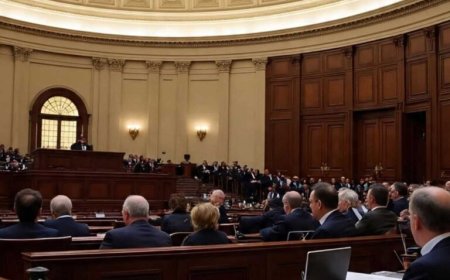Nigerian Universities Should Generate Their own Electricity Instead of Depending on the National Grid -Experts Propose
Nigerian Universities Should Generate Their own Electricity Instead of Depending on the National Grid -Engineering Experts Propose

By: Abdulwasiu Akintunde
As Nigerian Uiversities are grappling with high energy tariffs, spending millions of naira monthly to maintain electricity, experts in the engineering field have suggested hat Universities should generate their own power instead of relying on the national grid.
OPEN TELEVISION Naija Report indicate that the first-generation Universities in Nigeria pay between N250 million and N300 million each month for electricity, a significant financial burden.
Experts have proposed that Universities should leverage their engineering and water resources faculties to develop in-house power solutions. This shift would reduce their reliance on the national grid, save money, and promote environmental sustainability.
They emphasize that Universities must take proactive steps to address high electricity costs and become more self-sufficient.
Additionally, the experts argue that the current situation is unsustainable, urging Universities to act quickly. They also suggest that the government could support these efforts by providing funding and resources to help Universities generate their own power.
With the right investment and expertise, Universities can become more self-sufficient and reduce their reliance on the national grid.
The monthly electricity bill at the University of Ilorin has skyrocketed from N70 million to N230 million, according to OPEN TELEVISION Naija.
In response, the University's Management is implementing new measures to cut power expenses.
Before the Ibadan Electricity Distribution Company (IBEDC) introduced new tariffs, the University's monthly electricity bill was N70 million. The Vice Chancellor, Prof. Wahab Egbewole (SAN), expressed concern over the steep hike in tariffs imposed by IBEDC, calling the current electricity costs "unsustainable."
He emphasized the urgent need to reassess electricity usage practices and encouraged staff and students to adopt more responsible consumption habits to support the University’s cost-saving efforts.
Additionally, Prof. Egbewole announced that all new buildings under construction in the Faculties of Agriculture, Arts, Environmental Science, Law, and Social Sciences will include provisions for alternative power sources in their design, aiming to reduce the university's dependence on the national grid.
He also mentioned that plans are underway to ensure all faculties and departments have reliable alternative power solutions.
Meanwhile, the Managing Director of the Lower Niger River Basin Development Authority (LNRBDA), Engr. Adeniyi Aremu, emphasized the importance of Universities adopting low-cost energy harvesting technologies to reduce electricity expenses.
Engr. Aremu, formerly a Lecturer at the Engineering Department of the University of Ilorin before assuming his current role, highlighted the need for Universities to leverage existing energy sources within their campuses.
He stated, “Universities can best invest in low-cost energy harvesting or energy scavenging technologies by harnessing available energy sources on their campuses. Faculties of Engineering and Technology should develop smart power plants that utilize renewable energy sources for electricity generation.”
He further recommended a phased approach, either singularly or through hybrid systems, incorporating solar, hydropower, biomass, wind, solid waste, or other unconventional sources. Meanwhile, at the University of Port Harcourt, Management spends over N50 million monthly on electricity bills.
The University's Spokesperson, Dr. Sam Kpenu, revealed in Port Harcourt that the Institution pays at least N50 million monthly for electricity. Dr. Kpenu announced plans for the construction of a solar energy facility at the University to eliminate reliance on public power.
He stated, "Uniport is fortunate to benefit from an independent power project in the South-South Region, funded by the Federal Government through a Public-Private Partnership (PPP). Groundbreaking has commenced, and work is currently underway at the site."
Efforts to reach the Head of Corporate Communications at Port Harcourt Electricity Distribution Company (PHEDC), Olubukola Ilevbare, were unsuccessful as she did not respond to calls. An anonymous PHEDC Official informed our correspondent that only the Nigerian Electricity Regulatory Commission (NERC) has the authority to adjust electricity tariffs.
In Enugu, sources at the University of Nigeria, Nsukka (UNN), revealed that the University previously paid the Enugu Electricity Distribution Company (EEDC) a monthly electricity bill ranging from N80 million to N100 million.
The source added that the University had not yet calculated the exact monthly bill under the new electricity regime but anticipated it would exceed N150 million monthly. It was also reported that the University's Engineering Department had begun initiatives to generate its own power.
The former Vice Chancellor of UNN, Professor Charles Igwe, had frequently expressed concern over the institution's substantial monthly electricity expenses, prompting the engineering department to initiate action.
When contacted, Emeka Eze, Public Relations Officer of Enugu Electricity Distribution Company (EEDC), clarified, "EEDC does not determine or approve tariffs; that responsibility lies with NERC."
Robotic engineer, Mark Ndukwe praised UNN's Engineering Department for embarking on efforts to generate its own power and encouraged other Universities to follow suit, highlighting their capability to produce power for themselves and their communities. Meanwhile, management at Abubakar Tafawa Balewa University (ATBU), Bauchi, expressed dismay over the University's electricity bill, which surged from approximately N30 million in April to about N55 million by the end of June, posing challenges in full payment to Jos Electricity Distribution Company (JED).
OPEN TELEVISION Naija reports that approximately a week ago, the acting Vice Chancellor of the University, Professor Sani Kunya, visited the JED Head Office in Jos to negotiate a reduction in the University’s monthly electricity bill.
Zailani Bappa, the University's Director of Public Relations, emphasized to our correspondent that given the University's current financial constraints, paying approximately N55 million monthly to JED is unsustainable.
Bappa expressed concerns over the high costs of alternative energy sources and appealed for support from the Federal Government and Non-Governmental Organizations to help the University fully develop its pilot solar energy power plant at the main campus in Gubi.
He stated, "We currently have a solar power plant at our main campus generating about 0.5 megawatts, which is insufficient for meeting the power needs of both Gubi and Yelwa campuses."
He highlighted the demand for electricity in laboratories and computer studios essential for practical teaching sessions, stressing that with adequate funding and support, the University possesses the necessary resources to establish a self-sustaining solar power plant.
The Director highlighted that with access to solar facilities, ATBU has the potential to establish a mini power plant capable of meeting its own energy needs while also supplying electricity to neighboring communities.
OPEN TELEVISION Naija has also gathered that an energy expert based in Bauchi, Ahmad Tijjani, emphasized that for ATBU to successfully develop such a plant and reduce reliance on Distribution Companies (DisCos), University Management should initially utilize the expertise and infrastructure available within its Mechanical, Electrical, and Water Engineering departments.
"Tapping into Bauchi's abundant solar radiation and nearby water resources makes solar power and hydropower attractive options," Tijjani remarked.
"The Mechanical Engineering department can play a crucial role by designing and optimizing mechanical components for the power plant. This includes developing efficient solar panel mounts, tracking systems for maximum solar energy capture, and hydro turbines for the hydropower segment. They can also oversee thermal management systems to ensure optimal performance and safe operating temperatures for all mechanical parts."
"Furthermore, engaging students and faculty in these projects offers invaluable hands-on experience and fosters innovative solutions," he continued.
"The Electrical Engineering Department should concentrate on electrical aspects such as designing power distribution networks, integrating renewable energy sources into the existing grid, and implementing smart grid technologies for efficient energy management."
"They can develop control systems to ensure seamless operation and synchronization of diverse energy sources, along with inverters and transformers for effective power conversion and distribution," he added.
Tijjani emphasized that by leveraging these interdisciplinary resources, ATBU can establish a reliable and sustainable power solution, significantly cutting energy expenses and serving as a model for other institutions.
"As the country contends with frequent national grid failures and exorbitant electricity tariffs imposed by the Power Holding Company of Nigeria (PHCN), there is a pressing need for alternative energy sources to enable tertiary institutions to function effectively and competitively on both local and international levels."
Efforts to obtain a detailed report on monthly electricity expenditures at the University of Lagos were unsuccessful. As of the time of reporting, the Director of Communication, Adejoke Alaga-Ibraheem requested additional time to compile a comprehensive report from the Management.
However, an internal source disclosed that "the University used to spend N130 million on electricity bills. Currently, under Band A of the new tariff regime, UNILAG faces a projected monthly bill exceeding N300 million, which is unsustainable for a Federal Institution."
The source also revealed UNILAG's intentions to generate its own electricity, with initiatives underway in the Departments of Electrical and Electronic Engineering to establish alternative energy sources.
However, OPEN TELEVISION Naija concluded it's report stating that the practical implementation of generating sufficient megawatts for commercial use is encountering challenges as the University strives for sustainability. The capital-intensive nature of electricity generation poses additional hurdles, amid ongoing financial pressures and expenses across various areas of the Institution.
What's Your Reaction?
























































